Have you been considering a career in real estate? Well, before you jump feet-first into this dynamic and exciting industry, you should consider the cost to become a real estate agent. Generally speaking, costs vary by state and range from $1,800 to $16,000 and include education, applications, board dues, listing services, marketing, lead generation, and advertising costs.
Be sure to download our startup cost tracker to view the lows and highs for each real estate expense and track your own expenses. Then, continue reading to learn how much it costs to become a realtor.
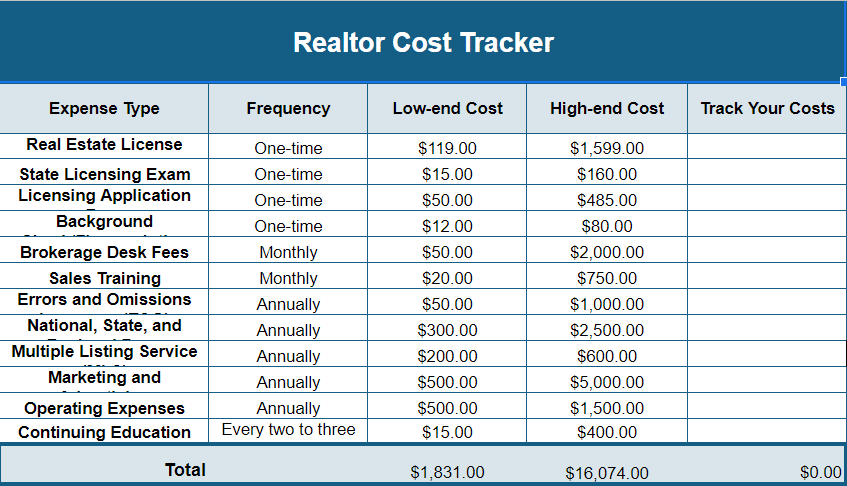
1. Real Estate License Education
-
Estimated cost: $119 to $2,000
When discussing real estate agent startup costs, we need to start with your state education. The first step to getting your real estate license is completing your state’s education course. The cost of real estate school ranges from $119 for Florida real estate prelicensing education to the high end of $1,599 for Ohio real estate prelicensing education, with the other 48 states falling in between.
The mandatory hours on how much to become a realtor vary by state and range from 30 to 180. Most states allow you to take convenient online courses, while others still require you to attend in-person classes.
|
|
Pricing varies depending on the school you choose for your education. Some schools provide exam prep tools, like flashcards, videos, and practice tests. In some schools, these cool tools may cost a little extra, so you’ll want to explore a few to find one that fits your needs and budget.
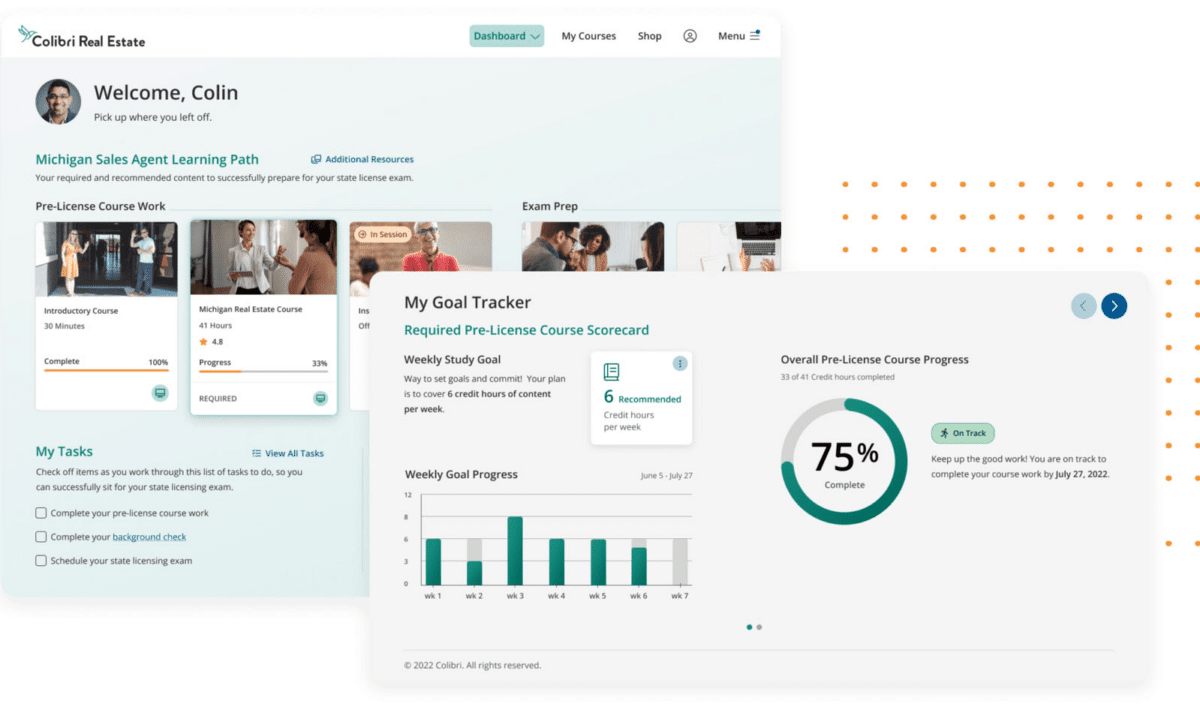
If you’re looking for a high-quality online education, consider Colibri Real Estate. It provides prelicensing, post-licensing, continuing education (CE), broker prelicensing, and exam prep in most states nationwide. You can choose from various course formats like livestream and self-paced learning, so you can go at the pace that works best for you. Also, learn from their Career Hub, which offers blogs, articles, and resources to help you throughout your real estate career.
2. State Licensing Exam & Application Fees
-
Estimated cost: $70 to $530
After you’ve completed real estate courses and passed your exam, it’s time to sit for your state’s licensing exam and fill out your application for licensure. Once you pass your state exam, you officially become a licensed real estate professional.
So how much is it to become a realtor? Both the exam and the application come with fees that vary based on the state where you want to practice. Also, if your state licensing board requires notarized documents, you should add this to your expense sheet.
To give you an idea, here are selected states, along with their respective licensing exams and application fees:
- Exam fees range from $15 in New York to $100 in Wyoming.
- Arkansas and South Carolina have the lowest real estate license application fee of $50.
- Colorado real estate application fee will cost $485.
- Fingerprints and a background check cost as low as $12 in Utah and as high as $80 in Florida and Ohio.
3. Brokerage Desk Fees
-
Estimated cost: $50 to $2,500 per month
If you want to close real estate transactions, finding a real estate brokerage to hang your license is another cost to become a real estate agent. Examine each brokerage’s compensation structure and see what expenses are covered. Some brokerages charge a desk fee for supplying you with a desk, office supplies, access to the copying machine, Wi-Fi, and conference rooms.
There are plenty of brokerages that don’t charge this fee but cover it with their portion of your sales commissions. Some brokerages charge from $50 to $2,500 per month, so it’s essential to calculate this toward your monthly expenses. So, make sure to interview multiple brokerages before deciding which one is the best fit for you.
Take a look at the estimated range of desk fees for these popular brokerages:
| Brokerage | Monthly Brokerage Desk Fees |
|---|---|
| Keller Williams | $50 to $200 |
| RE/MAX | $300 to $2,500 |
| Coldwell Banker | $50 |
| Spire Group | $600 |
| Realty ONE Group | $100 |
4. Sales Training Costs
-
Estimated cost: $600 to over $2,000

There are many pros and cons to being a real estate agent, but sales training is the essential ingredient for your success as an agent. When considering brokerages, ask what sales training is available and if you are required to pay out of pocket. Some large franchises have professional development, peer coaching, mentoring, and sales training courses.
However, you may have to pay for some training or real estate coaching, while other programs are free with your company affiliation. Paid sales training prices can range from $600 to over $2,000, depending on what the program includes. You can also pick up a book on real estate selling skills on Amazon—costing around $20 or less—to hit the ground running.
5. Errors & Omissions Insurance
-
Estimated cost: $500 to over $1,200 per year
Most brokerages provide their real estate agents with errors and omissions (E&O) insurance. If you don’t remember from your course, this is liability insurance that covers you if you’re accused of negligence or mistakes during the transaction. If it is not company-provided or you want extra coverage, you will have to get a policy through an insurance company for around $500 to $1,000 per year.
If you join the National Association of Realtors (NAR), you will get additional E&O insurance at a discount through your Realtor benefits. Not every real estate agent or brokerage is a Realtor member, so joining the NAR is a great solution to outweigh the costs.
6. National & Regional Board Dues
-
Estimated cost: $200 to over $1,000
There’s no way around this. If your broker is a member of the NAR, you must also become a member and pay dues. You do have to join a local real estate board if you want to access the multiple listing service (MLS). A NAR Realtor membership has an annual fee of $156 and a yearly Special Assessment for the Consumer Advertising Campaign (SACAC) fee of $45. These fees are added to your local Board of Realtors fees, so you can pay them when you renew your annual board membership.
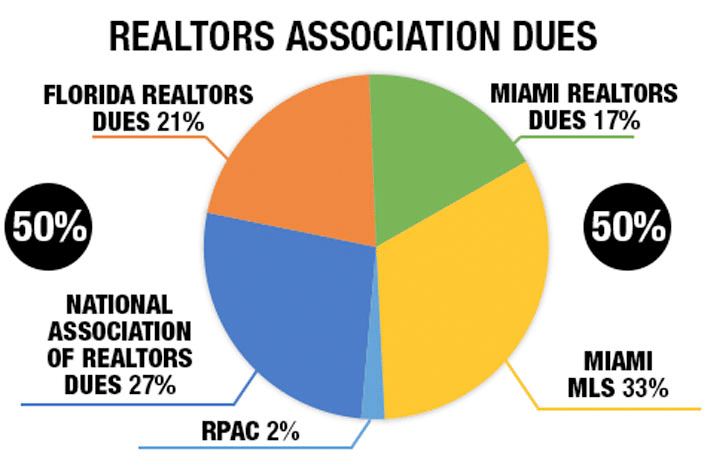
Here’s an example from the Miami Realtors board that shows board membership dues and what percentages of member dues cover. Dues vary by state and by the board you join. To join a board, your principal broker must hold a license in that state and be a member of the same board.
7. Multiple Listing Service
-
Estimated cost: $20 and $50 per month
One expense you have to remember as you learn how much it costs to become a realtor is the multiple listing service (MLS). MLS fees and your board membership dues are typically between $20 and $50 per month. Access to your local MLS is the name of the game! It’s the piece that separates you from just someone off the street.
With access to your local MLS, you can advertise, view, and schedule showings for listings in your area. It’s also an excellent marketing tool for listing appointments—you can show how it integrates with third-party sites like Zillow and Realtor.com.
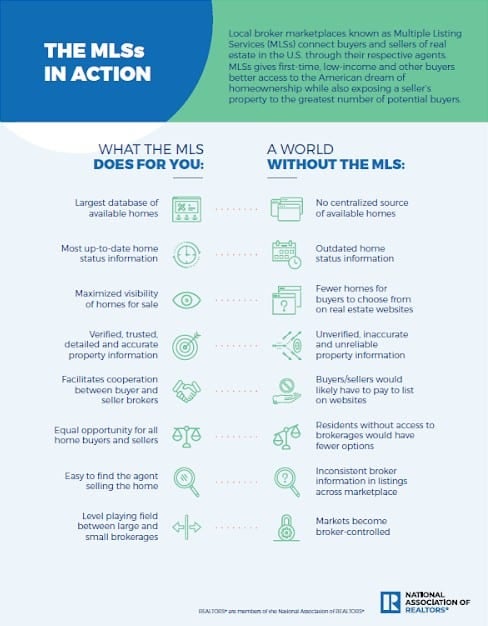
Zillow Premier Agent is a program that provides buyer leads by location. There are various pricing tiers, and it works great for real estate agents seeking buyer leads. If you want to dominate your area as an agent working exclusively with buyers, it’s a great program to check out. Plus, Zillow constantly refreshes so prospects see the latest MLS updates and new listings, and they can see additions and changes shortly after you update them in the MLS.
8. Marketing & Advertising Expenses
-
Estimated cost: 10% of their gross commissions
If you’re going to be an effective real estate agent, you’re going to need to invest in marketing and advertising. It’s essential to your survival in this business to get your name out there to attract leads consistently, so creating a marketing and advertising budget is crucial.
New agents should spend about 10% of their gross commissions on marketing and increase that budget as their business grows. Diversify and stretch your marketing budget with online advertising, such as Google and Facebook ads and email marketing. Print advertising can include direct mail, brochures, flyers, and local newspapers.
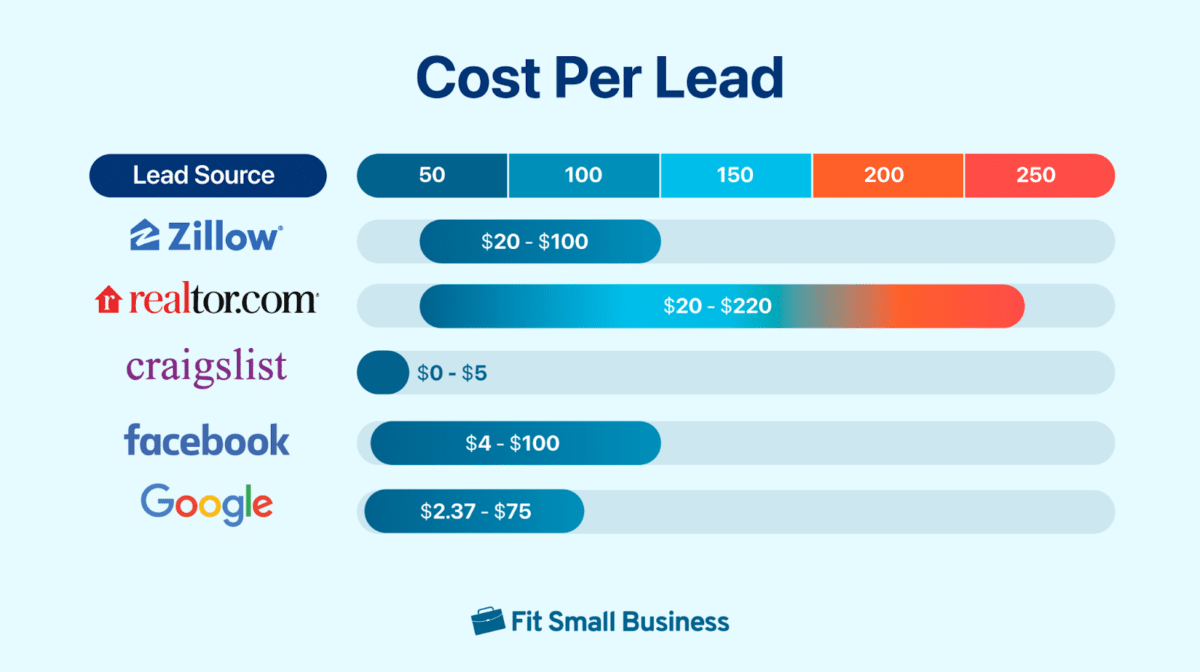
Join some networking groups to market yourself and generate new leads. Paid networking groups like Business Networking International (BNI) will cost around $600 to $800 annually, depending on which chapter you join. But, the trade-off is that you’ll be the only real estate agent in the group that handles your area, so your leads will come to you exclusively. Remember, if you’re making money from being a member of the group, then your return on investment (ROI) is worth the price tag.
9. Organization & Automation Tools
-
Estimated cost: Free to over $300 per month
Customer relationship management (CRM) software is an excellent tool for automating and organizing contacts, lead generation, listings, and marketing, like your social media ads and email marketing. The cost of a real estate CRM can vary depending on the size of your team, features, and functionality. The price range can be from $0 to $300 or more monthly.
While there are many CRMs to choose from, check out the options we’ve highlighted below:
 |
| $57 per user | Visit Follow Up Boss |
| $14.90 per user | Visit Pipedrive | |
| $49 per user | Visit Wise Agent | |
 |
| Free; paid plans starting at $18 | Visit HubSpot |
 |
| $57 per user | Visit Follow Up Boss |
| $14.90 per user | Visit Pipedrive | |
| $49 per user | Visit Wise Agent | |
 |
| Free; paid plans starting at $18 | Visit HubSpot |
We’ve done a lot of research on real estate CRMs and have plenty of additional information. You can check out our article on the best CRMs and even our article on the best free CRMs to find the one that’s right for you. We always say, the best CRM is the one you’ll use. So, there’s no one perfect CRM. Dig into our resources, find one you feel comfortable using, and get started.
10. Business Operating Expenses
-
Estimated cost: $1,300 to over $2,000 per month
When you become a real estate agent, you’re essentially starting your own small business. Your brokerage carries some of the overhead since you work under its umbrella, but you’ll be responsible for deductible expenses and must pay Social Security and federal and state income taxes on your earnings. You definitely should consider hiring an accountant or tax preparer, so you’ll want to add that to your business expenses.
Other miscellaneous average monthly expenses are the following:
- Internet: $30.92
- Mobile plan: $127.10
- Health plan (for a single person): $560
- Travel expenses: $140
- Income taxes: $661
You can also fund a Simplified Employee Pension Plan Independent Retirement Account (SEP IRA) to contribute a percentage of your net self-employment income into a retirement plan and find a health insurance policy. Some additional operating expenses include meals, travel, real estate “for sale” signs, name riders, cell phones, and internet service. According to the NAR, Realtors’ most considerable business expense is $1,710 for vehicle costs.
Check out our Top 15 Real Estate Agent Tax Deductions to make sure you’re taking advantage of as much savings as possible.
11. Continuing Education
-
Estimated cost: $15 to $400
Every state requires real estate licensees to take continuing education every few years to renew their licenses. Pricing depends on the school, how many CE credits the class is worth, and whether you’re buying a bundle, package, or individual class. Individual classes cost around $15, while bundles and packages cost $400. Free CE courses may be offered periodically through your local board, brokerage, or the NAR. The required hours differ from state to state, as does the curriculum.
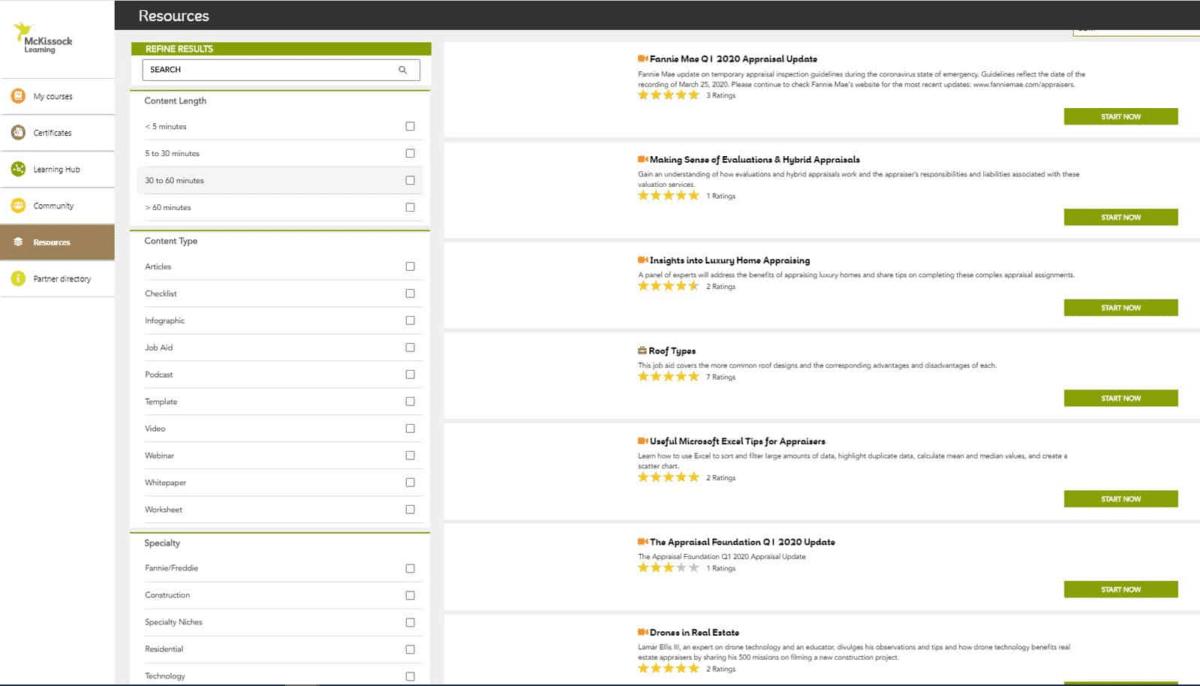
Online real estate schools offer packages that include CE classes, study aids, career resources, and access to instructors. Classes are offered in person, on-demand, or livestream, so you can find something to fit your schedule. McKissock Learning is an excellent resource for finding state-approved CE classes. It provides online CE packages and individual classes for most states.
12. Time Investment
-
Estimated cost: $0
We know you’re asking, “How much does it cost to become a realtor?” to find out how much money we’re talking about. But you can’t skip the time investment you’ll make kick-starting your real estate career. Time is money, so you want to create a strategy to account for the time it takes to complete your tasks.
Your time is a hidden cost of being a realtor, and you need to know how much time you’re spending and where. In the first year, it’s a lot of work to generate sales, but once you’re an experienced real estate agent, you can outsource some of your tasks and focus on your clients.
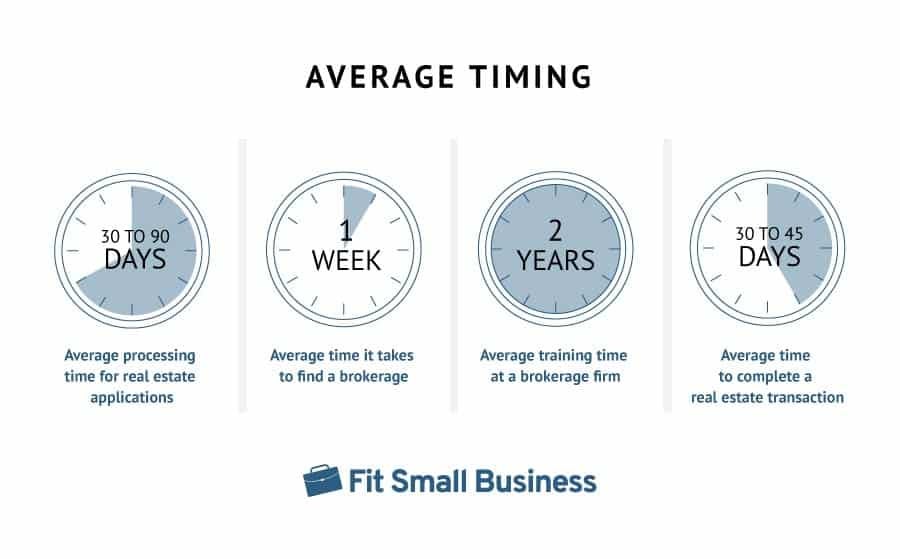
According to our own proprietary salary database tool, the nationwide average hourly rate for real estate agents in 2024 is $43.51. You could earn more or less, depending on where you live, your commission rate, and the number of properties sold. To calculate your time investment, track your weekly or monthly working hours and divide it by your annual gross commission or your GCI.
Check out our article 10 Best Cities For Real Estate Agents to see what agents earn in different parts of the country. Use that salary information to calculate your hourly wage. Remember, if it can be done for less money than your hourly rate, you should hire someone else to do it so you can focus on what you do best.
Frequently Asked Questions (FAQs)
Is it hard to make money as a Realtor?
Since real estate sales are commission-based, you don’t receive a regular paycheck, so there can be dry spells when there’s no income. That’s just a hidden cost to become a realtor. Some brokerages may offer a minimal salary during your first year, unless you’re heavily connected and get a lot of leads and referrals out the gate. But if you stick with it, you can make good money in real estate, and what once felt hard will become second nature.
How do I start a successful real estate career?
Getting your real estate license is the first step in becoming a real estate agent. After that, you’ll need to choose a brokerage to work with. Choosing the right brokerage is tantamount to your success as a new real estate agent. You have to develop lead generation skills, learn how to market yourself and your listings, write and follow a business plan, and stay on top of market trends. It can be challenging when you’re just getting started, but if you stick with it and commit to your success, you can build a fun, exciting, rewarding, and lucrative career.
Is real estate a stressful job?
Oh, yes! Real estate can be stressful. You’re working with people who may have broad emotional swings as they embark on one of their most significant financial decisions. Your role will change in an instant to peacekeeper, counselor, or therapist, so try to keep your emotions in check.
There will also be times when you don’t make any money. Real estate is commission-based, so if (or when) a deal falls through, you won’t get paid. You can actually go for months without a paycheck. Your best bet is to budget your spending to make your income last through slow times. Real estate start-up costs can be great, so it’s a good idea to go into this career with a little money saved for your expenses until you get your business up and running.
Bringing It All Together
How much does it cost to be a realtor? Becoming a real estate agent costs a bit of money, especially when you’re first starting. The average cost to become a real estate agent varies by state and where you choose to invest, whether it’s a high-end website, coaching, desk fees, or social media marketing. There are so many factors to consider that it’s hard to state an exact amount or range. In a nutshell, you should account for your real estate education, licensing, brokerage fees, marketing, advertising, and operating expenses. Stick to a budget and invest wisely, and you can become a rock star real estate agent with a rewarding and lucrative career.











Add comment